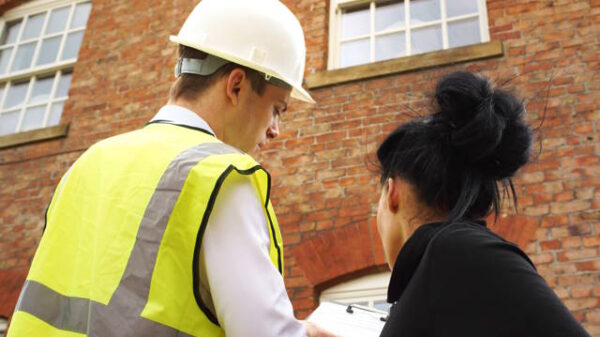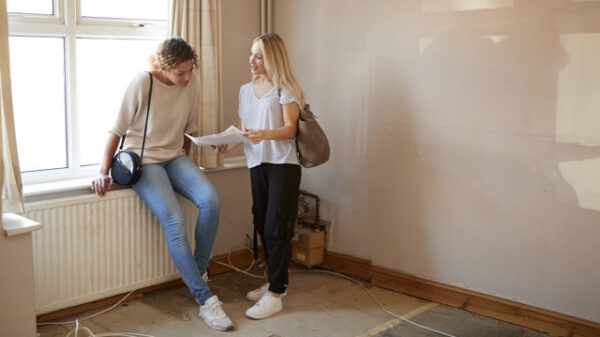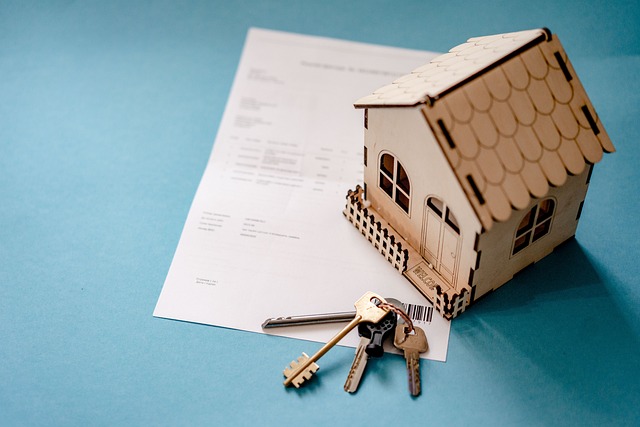House hunting is an exciting time, but it’s also fraught with risk, especially if you don’t ask the right questions before taking the plunge.
When your viewing properties you should always be prepared and have a list of key questions ready to ask.
This will help you get a better understanding of the property and determine whether it’s a good fit for your needs.
I’ve put together this list of the most important questions to ask when viewing a home.
Important questions to ask when buying a house
1. What are the property’s square footage and room dimensions?
This information can give you a better idea of the size of the home and help you determine whether it will be a good fit for your family and your furniture.
You’ll be able to plan for large items such as beds and cabinets, and it’ll also give you a better idea of whether the home you’re looking at is somewhere you can grow into if you’re planning to expand your family.
2. What is the age of the home and when was it last renovated?
This is important as it can help you determine the condition of the home and whether it will require any major repairs or renovations.
It’s useful to have this information so you can budget appropriately and also decide if you want to take on a project or not.
Projects are great for people who want to make their mark on a property, but costs often spiral out of control, so you need to budget appropriately.
Considering having a home inspection done to give you an idea of any work that may need doing on the property.
This will also establish the state of the home’s foundation and structure, and check for other issues such as Japanese knotweed.
3. How much are the property taxes and what other fees or charges are associated with the property?
This information can help you determine the overall cost of the property and whether it will fit within your budget.
Your conveyancing solicitor will carry out searches and produce a report which will help you avoid any unexpected bills at a later date.
You’ll also need to establish what the Council Tax is as well to ensure that you can afford the property and pay your mortgage comfortably.
How is the home heated and cooled? This information can give you a better idea of the home’s energy efficiency and help you determine your energy bills.
4. How long has the property been on the market?
This will help you establish the offer that you’d like to put in on a property.
The longer a house has been on the market, the cheekier your offer can be as the owner may be more willing to accept a lower sum.
You might feel like you’re insulting the seller, but ultimately to you want to get the most bang for your buck when buying a house.
5. Why are the owners selling up?
This may seem like a simple question, but it could have a bearing on whether you put in an offer or not.
Are they in the middle of a dispute with the neighbours? Does someone have a dog that barks throughout the night?
Is there a major development planned nearby which may impact the traffic and/or value of the property at a later date?
There may be a reason as to why they’re selling which could impact your decision.
6. Is there enough storage space in the home?
This will help you determine whether you’ll have enough storage space for your belongings and whether you’ll need to add any additional storage solutions.
Hiring a storage unit can be expensive, especially over the long term, but for some people it’s the only solution, hence the explosion in storage warehouses.
You could also consider budgeting for a shed or home office to create additional storage, or even an extension to the property.
7. What’s included in the sale of the home?
Getting a detailed list of everything that’s include in the sale of the property is an important part of the home buying process.
This includes things such as light fittings, curtains and even larger items such a fridge freezers and other home appliances.
The latter may form part of the home buying negotiating process, especially if the seller doesn’t want the hassle of moving them.
It’s difficult to cover everything though. I once bought a property where the owner removed the fitted loft ladder leaving me with dozens of boxes littering the house until I could fit one!
8. What is the neighbourhood like?
Finding out about the neighbourhood from the seller is a great way to establish if the area is safe and secure and somewhere you’d like to live.
You should also do your own research, such as walking the area and visiting at different times of the day and night to decide if it will be a good fit for your family.
There are also various websites that’ll let you check out the crime rate in the area you’re interested in.
9. What is the parking situation like?
These days most families have at least two cars, yet home builders are including fewer parking spaces in their designs than ever before.
This means that you’ll need to check out the parking situation when deciding whether to buy a property.
Is the driveway big enough? Is there a garage suitable for an extra car? Is there on-street parking for friends and family to use when they visit?
These are all questions you can ask the home owner/estate agent when viewing a property.
10. Is the home in flood risk area?
Establishing the flood risk to a property is a crucial part of buying a property.
The home owner/estate agent should be able to answer this for you, but there are also various online resources you can use to check out he flooding status of an area.
It’s important to determine the risk to a property as it will have a significant impact on the cost of home insurance you’ll need.
In some extreme cases you may find that many insurers are unwilling to cover a property.
11. Are there any potential environmental hazards in the area?
Determining whether there are any risks such as toxic waste sites, hazardous waste storage facilities, or other potential hazards in the area is very important when buying a home.
Your conveyancing solicitors will include some of this information in their report, but you should also do your own research as well.
Failing to establish these risks could leave you out of pocket on the value of your property, plus you’ll have difficulty selling in the future.
12. What are the home’s proximity to schools, shops, and public transportation?
Establishing whether the home is conveniently located for your needs is crucial to a happy living environment.
Many families choose a property on the basis of the school catchment area, but there are other considerations to.
If you commute to work, you’ll need to work out how long it will take you, whether it’s by rail or road.
Equally, if you want to walk into a town centre and enjoy the nightlife, you’ll need to do your homework to ensure it’s practical.
13. Are there any homeowners’ associations or covenants in place for the neighbourhood?
This information can help you determine whether there are any restrictions or requirements you will need to adhere to as a homeowner.
Equally, if there’s a Neighbourhood Watch group in the area this is a good sign that your neighbours care about the environment and will look out for each other.
14. Are there any liens, encumbrances or outstanding debt on the property?
You’ll need to find out if there are any outstanding debts or obligations associated with the property that may need to be paid off before you can take ownership.
Again, your conveyancing solicitor will be able to help you with this during their searches.
Conclusion
Asking these questions during a viewing can help you get a better understanding of the property and determine whether it’s the right fit for you.
Remember, buying a home is a significant investment, so it’s important to take your time and ask the right questions to make sure that you find the right property for you.
Don’t hold back either! It might feel like you’re bombarding the seller / estate agent but ultimately it’s important to be fully informed before making such a huge purchase.











